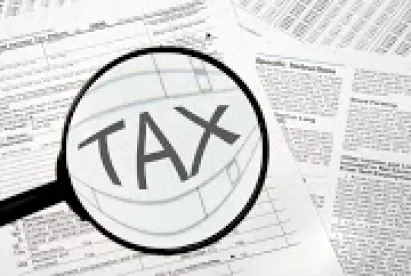Senate Finance Committee issues tax reform paper setting forth challenges, goals, and possible measures affecting tax-exempt organizations and charitable giving.
On June 13, the staff of the U.S. Senate Committee on Finance (the Senate Finance Committee) released a paper describing the tax reform options affecting tax-exempt organizations and charitable giving that are currently under consideration.[1] The paper describes the challenges of reform and lists the following "potential goals that could serve as guidelines for . . . reviewing the tax rules for exempt organizations and charitable contributions":
- Maximize the efficiency and effectiveness of any incentives for charitable giving that are retained or reformed
- Consider whether the availability of tax incentives for charitable giving should be broadened to more taxpayers
- More tightly align tax-exempt status with providing sufficient charitable benefits
- Closely examine the relationship between political activity and tax-exempt status
- Reconsider the extent to which tax-exempt organizations should be allowed to engage in commercial activity
- Improve the accountability and oversight of tax-exempt organizations
The paper also lists the staff's concerns with respect to the current tax rules affecting tax-exempt organizations, including the following:
- Whether the charitable deduction is fair to all taxpayers, given that the amount of the charitable deduction is proportional to a taxpayer's income tax rate and not all taxpayers pay the same rate of tax due to the progressive tax rate structure
- Whether alternative tax policies—such as an above-the-line deduction coupled with a floor, a refundable credit, or a government matching grant program—could achieve the same overall amount of charitable giving at a lower cost to the federal government
- How much political activity tax-exempt organizations should be allowed to conduct and whether organizations should be required to disclose their donors
- Whether tax-exempt organizations provide a sufficient public benefit and whether organizations are allowed to conduct excessive private benefit
- How much untaxed commercial activity tax-exempt organizations should be allowed to conduct
- Whether more should be done to prevent waste, fraud, and abuse of tax-exempt status, particularly with respect to excessive compensation and high fund-raising costs relative to amounts raised
Listed below are the major reform proposals currently being considered by the Senate Finance Committee.
Charitable Deduction Proposals
- Repeal the charitable contribution deduction
- Fundamentally reform the charitable contribution deduction by converting it to a refundable or nonrefundable credit or a government matching grant, imposing a cap on the amount or value of the charitable deduction, or imposing a maximum dollar cap on itemized deductions including the charitable deduction
- Attempt to increase the effect of charitable incentives on charitable giving by imposing a floor (i.e., only contributions in excess of a certain percentage of taxpayer income are deductible)
- Incrementally reform the charitable contribution deduction by simplifying how much taxpayers may deduct as a share of their income, streamlining statutory language, carving the charitable deduction out from the Pease limitation, or allowing taxpayers to deduct charitable contributions for the previous tax year until April 15 of the following year
- Limit deductions for noncash contributions to the lesser of the donor's basis or fair market value; require taxpayers to recognize capital gains on transfers to charity; disallow contributions of property that are not of direct benefit to charities; limit the deductions for clothing and household items to $500; modify the rules regarding contributions of fractional interests in tangible personal property, such as art; allow enhanced deductions for inventory only in response to requests from a charity
- Expand deductions for noncash contributions to allow taxpayers to not recognize gain on a sale of appreciated property if all proceeds are donated to charity within 60 days, make permanent enhanced deductions for the donation of food inventory by a business entity, increase the standard mileage rate for individual automobile use by volunteers
- Disallow deductions made to support specific commercial activities, including contributions that are a prerequisite to purchasing tickets to a sporting event, contributions to support collegiate sports teams, or contributions to organizations engaged in large amounts of commercial activity
- Modify the deduction for contributions of conservation easements by repealing the deduction, making permanent the expanded deduction, replacing the deduction with a refundable credit, eliminating the deduction for certain types of property, or strengthening the qualification requirements
- Expand or make permanent deductions for tax-free distributions from individual retirement accounts for charitable purposes
- Reform reporting and valuation rules by requiring charities to report gifts above a certain amount, increasing the threshold at which taxpayers are required to obtain a qualified appraisal, or increasing reporting requirements for the contribution of inventory property
Taxation of Nonprofit Business Activities
- Tax all commercial activities of tax-exempt organizations
- Revise the requirements for tax-exempt status for organizations engaged in commercial activity to disallow such status for organizations engaged in certain business activities, impose requirements to provide service irrespective of pay or at a reasonable fee, clarify the effect of engaging in commercial activities on tax-exempt status, and reassess the treatment and requirements for hospitals and insurance providers
- Revise the unrelated business income tax (UBIT) rules by classifying certain activities as unrelated to any charitable mission, expanding exemptions from UBIT, exempting charities that exclusively serve the poor from UBIT if income is used to fund the primary purpose, or modifying the UBIT treatment of income from debt-financed activities
- Modify the rules related to the conversion from tax-exempt to for-profit status by imposing a termination tax on the conversion of assets
- Eliminate tax-exempt status of professional sports leagues under the definition of "business leagues"
Political Activity and Lobbying of Tax-Exempt Organizations
- Limit the political election activity of 501(c)(4), (5), and (6) organizations to a percentage of expenditures; require disclosure of the amount and percentage of expenditures directed at influencing elections; or require organizations supporting political activity to disclose donors
- Modify the categories of tax-exempt organizations that may engage in political activities by creating a new category engaged primarily in those activities, eliminating 501(c)(4) organizations and allowing them to reapply for exemption under another category, requiring organizations involved in any political campaigning to be a 527 organization, or denying exemption to 501(c)(5) unions if dues are used for political campaign activities
- Involve the Federal Election Commission (FEC) in reporting and disclosure requirements by imposing an excise tax on organizations that fail to report contributions or expenditures to the FEC, requiring 527 organizations to register with the FEC, or denying expense deductions for election-related activity expenditures by businesses that fail to report such expenditures to the FEC
- Reform reporting and disclosure rules by requiring organizations to notify their members of the portion of their dues used for political or lobbying activities, increasing reporting thresholds for 527 organizations, or requiring 501(c)(4), (5), and (6) organizations to apply for tax-exempt status
- Modify the application of the gift tax by applying the gift tax to certain organizations or clarifying that payments to 501(c)(4) organizations are excluded from the gift tax
- Expand the prohibition on 501(c)(4) organizations engaged in lobbying from receiving any federal funds to include contracts
Broad Tax-Exempt Issues
- Reform the taxation of private foundations by replacing the two rates of net investment income excise tax with a single rate or relax the rule prohibiting private foundations from owning more than 20% of a for-profit corporation in certain situations
- Reform the taxation of endowments by requiring organizations with endowments to spend or distribute certain minimum amounts each year
- Modify the rules to ensure that donor-advised funds and supporting organizations are directing resources for charitable purposes in a timely fashion by imposing a minimum payout requirement or requiring that all assets be distributed within a specified time frame
- Limit executive compensation by tax-exempt organizations, including replacing the rebuttable presumption standard under section 4858 with a minimum due diligence requirement or requiring disclosure of the compensation study
- Reform reporting requirements by requiring organizations to make public their Forms 990-T, requiring electronic filing of all Forms 990, allowing charities with up to $1 million in gross receipts to file a simpler form than Form 990, or requiring organizations claiming church status to alert the Internal Revenue Service
- Develop enforcement methods other than revocation of tax-exempt status for noncompliance
Implications
If enacted, many of the proposals listed above would have a significant impact on tax-exempt organizations. The Senate Finance Committee staff has indicated an interest in discussing these options with organizations that may be affected by the proposals. Listed proposals are under consideration, but they are not necessarily supported by a member of the Senate Finance Committee.






 />i
/>i

